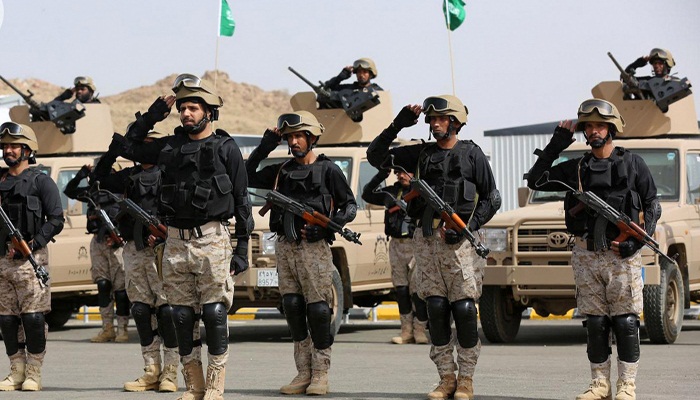Alwaght-Amid a deepening economic crisis, the Saudi regime is the biggest arms importer in the West Asian region, and the second biggest in the world, after India.
Between 2011 and 2015 Saudi Arabia was the world's second largest arms importer, with an increase of 275 per cent compared to 2006 and 2010.
In the same period, arms imports by the United Arab Emirates rose by 35 per cent and those by Qatar went up by 279 per cent.
According to the Stockholm International Peace Research Institute (SIPRI), during 2011-15, 27 per cent of arms transfers to the region went to Saudi Arabia, 18 percent to the UAE and 14 percent to Turkey. The US accounted for 53 percent of total arms supplies to the region, the Britain for 9.6 percent.
The Saudi-led military aggression in Yemen by a coalition of Arab states, which began in March 2015, was boosted by high levels of arms imports to several of the states leading the intervention, including Egypt, Qatar and the UAE.
"Although concerns have been raised in arms-supplying states over Saudi air attacks in Yemen, Saudi Arabia is expected to continue to receive large numbers of major arms from those states in the next five years," the SIPRI report said.
The London-based Campaign Against Arms Trade (CAAT) says the UK government has licensed US$9.5 billion (£6.7bn) of arms to Saudi Arabia since David Cameron took office in 2010, including US$4 billion (£2.8bn) since the bombing of Yemen began in March 2015.
"The humanitarian situation is getting worse and the UK government has been complicit in it. We agree that arms sales need to stop, but they should never have been allowed in the first place. Saudi Arabia has a terrible human rights record and has been supported by governments of all political colors for far too long," said Andrew Smith of CAAT.
The Saudi regime's military budget has increased yet The International Monetary Fund has predicted tough economic conditions for the Al Saud kingdom following low record of oil prices globally.
IMF says oil-rich Saudi Arabia is set to increase taxes and reduce fuel subsidies; moves which analysts say will increase dissent in the dictatorial monarchy.
Saudi regime's finances are depleted by continued subsidies, hand-outs to public sector workers and the regime's aggression on Yemen and unabated destabilization efforts in the region especially support for ISIS terrorists group which is said to be the richest terrorists group in the world.



























